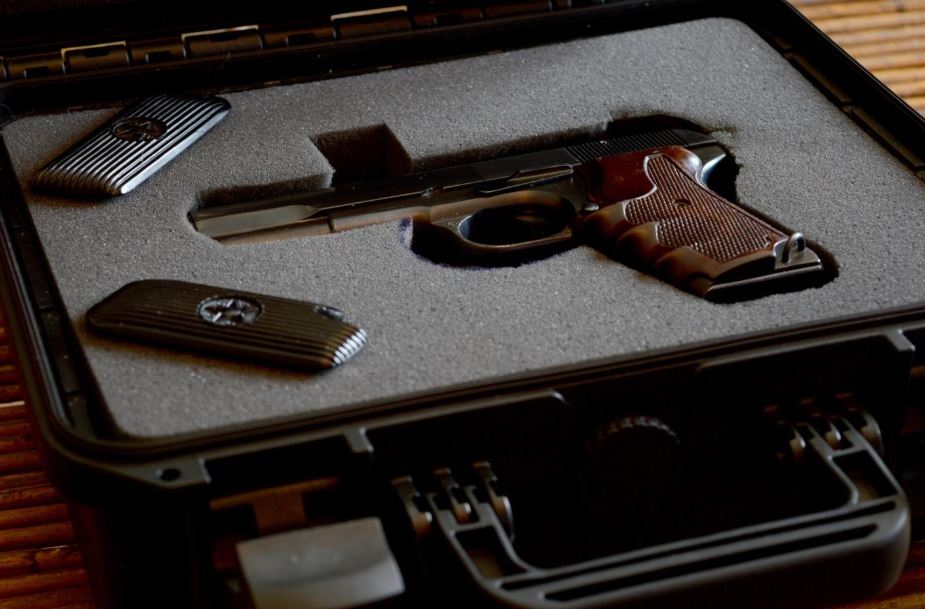Are you looking to make your next gun upgrade? A muzzle brake or compensator may be something you need to consider. If you don’t know the difference, you could end up with the wrong item for your needs.
We’ll walk you through the differences between a muzzle brake vs compensator. This guide will help you choose the right item for your gun.
Design
When comparing muzzle brake vs compensator, it is important to note the differences in design. A muzzle brake is designed to redirect pressure and gas from the muzzle in order to reduce felt recoil.
A compensator, on the other hand, is designed to redirect muzzle rise. This is accomplished by vents or ports that exit the top or sides of the compensator. The result is that the muzzle brake uses a level with each shot, making it easier to control during rapid fire.
Effectiveness
Muzzle brakes are more effective at reducing recoil, while compensators are more effective at reducing muzzle rise.
This is because muzzle brakes redirect some of the gases that exit the muzzle, while compensators use those gases to counter the rise of the muzzle.
If you are looking for a device to help with both recoil and muzzle rise, a muzzle brake is the better option.
Cost
Due to their different functions, muzzle brakes and compensators also have different cost implications. Muzzle brakes are typically more expensive since they require more sophisticated machining.
Compensators, on the other hand, are usually less expensive, since they don’t require as much work to produce.
Maintenance
When it comes to the maintenance of a muzzle brake vs compensator, there are a few key differences to be aware of. For starters, muzzle brakes typically require more frequent cleaning due to the increased build-up of carbon and lead.
This is because the muzzle brake directs more of the gases and debris from the firearm toward the shooter, rather than away from the firearm. In contrast, compensators typically require less frequent cleaning as they redirect the gases and debris away from the shooter.
Additionally, muzzle brakes typically have more moving parts than compensators, which can lead to increased wear and tear. As such, it is important to regularly inspect and clean your muzzle brake to ensure it is in good working condition.
How They Work
A muzzle brake is screwed onto the muzzle of a rifle barrel, and its primary purpose is to reduce muzzle rise and felt recoil. It does this by dissipating some of the gases that push the bullet out of the barrel.
A compensator is also screwed onto the muzzle of a rifle barrel, and its primary purpose is to counter the effects of muzzle rise. It does this by directing some of the gases that push the bullet out of the barrel upward, which cancels out the muzzle rise.
In general, muzzle brakes and compensators serve the same purpose: they reduce recoil and muzzle rise. However, there are some key differences between the two.
Muzzle brakes are generally larger and heavier, and they work by redirecting gases to reduce recoil. However, compensator guides, are lighter and work by redirecting gases to offset muzzle rise.
Troubleshooting
Muzzle brakes are designed to redirect gases to reduce recoil, while compensators aim to counterbalance the muzzle rise.
In terms of troubleshooting, if your firearm is having problems with recoil or muzzle rise, you will first want to determine whether a muzzle brake or compensator would be more beneficial.
If you are unsure, you can always consult a gunsmith or other firearms expert.
Tips for Installing and Using Muzzle Brakes and Compensators
If you are looking to install a muzzle brake or compensator on your firearm, there are a few things to keep in mind.
First, be sure to check your local laws and regulations to see if there are any restrictions on the use of muzzle brakes or compensators.
Secondly, when installing a muzzle brake or compensator, it is important to follow the manufacturer’s instructions carefully.
Thirdly, be sure to test your firearm with the muzzle brake or compensator installed to make sure it is functioning properly and to get a feel for how it affects the firearm’s performance.
Lastly, always use ear and eye protection when using a firearm with a muzzle brake or compensator installed.
Benefits
There are a few key benefits that muzzle brakes and compensators offer to shooters. Muzzle brakes help to reduce recoil by redirecting gases that would otherwise push back against the shooter.
This can be a huge benefit for shooters who are trying to stay on target during rapid fire. Compensators, on the other hand, help to reduce muzzle rise. This can be beneficial for shooters who want to keep their sights on target during rapid fire.
The right muzzle brake is typically more effective at reducing recoil than compensators, but it can also be noisy and can cause the gun to be more difficult to control.
Compensators, on the other hand, are not as effective at reducing recoil but they can help to keep the muzzle of the gun down, making it easier to control.
Drawbacks
One of the main drawbacks of muzzle brakes is that they can be very loud. This is due to the fact that they redirect all of the gases that come out of the muzzle, which can be quite loud.
Additionally, muzzle brakes can produce a large amount of muzzle blast, which can be very unpleasant for shooters and bystanders alike. Another drawback of muzzle brakes is that they can be expensive.
This is because they require special machining and materials, and often need to be custom-made for each firearm. Overall, muzzle brakes are more effective at reducing recoil than compensators, but they come with a few notable drawbacks.
They can be very loud, produce a large amount of muzzle blast, and be expensive.
Which One Is Right for You
There are a few things to consider when selecting which muzzle device is right for you and your firearm. First, what is the primary purpose of the device? Do you need it for recoil reduction, muzzle rise compensation, or both?
Second, what is the diameter of your barrel at the muzzle? Muzzle brakes and compensators are typically offered in different sizes to match different barrel diameters.
Finally, what is the overall length of your firearm? A longer device may be necessary to achieve the desired effect, but it will also add length to your firearm.
Muzzle brakes work by redirecting gases that exit the muzzle to reduce rearward recoil. This can be beneficial for reducing felt recoil and getting back on target faster for follow-up shots.
However, muzzle brakes can also increase muzzle blast and noise, so they may not be ideal for shooting in close proximity to others. Compensators work by countering muzzle rise through a series of ports or baffles that redirect gases upward.
This can help keep your sights on target during rapid fire and can also reduce muzzle flash. However, compensators can also increase noise and muzzle blast, so they may not be ideal for shooting in close proximity to others.
So, which one is right for you? It depends on your needs and preferences. If you’re looking for the most recoil reduction possible, then a muzzle brake is the way to go.
If you’re looking for a more compact and lightweight option, then a compensator is the way to go.
How to Choose the Right Muzzle Brake or Compensator
There are two main types of muzzle devices: brakes and compensators. Brakes redirect gas to the side and top of the muzzle to counteract recoil, while compensators do the same for rising muzzles due to barrel jump.
Both muzzle devices serve different purposes, but both can be useful in the right situation. Here are some tips for choosing and using muzzle brakes and compensators:
Consider the Type of Firearm You Are Using
If you are using a rifle for long-range shooting, a brake might be more beneficial. If you are using a handgun for close-range shooting, a compensator might be more beneficial.
Make Sure the Muzzle Device Is Properly Installed and Aligned
Improper installation can lead to decreased performance or even dangerous malfunctions.
Be Aware of the Increased Noise Level When Using a Muzzle Device
Wear ear protection if necessary.
Be Aware of the Increased Flash When Using a Muzzle Device
This can be mitigated by choosing a device with an integrated flash suppressor.
Choose Between Muzzle Brake vs Compensator Now
The muzzle brake and compensator serve different purposes, with the muzzle brake reducing recoil and the compensator reducing muzzle rise.
When choosing between a muzzle brake vs compensator, it is important to consider the specific needs of the shooter.
Did you find this article helpful? Check out the rest of our blog for more related content.





2 comments
… [Trackback]
[…] Find More Info here on that Topic: thelibertarianrepublic.com/muzzle-brake-vs-compensator-what-are-the-differences/ […]
… [Trackback]
[…] Find More on to that Topic: thelibertarianrepublic.com/muzzle-brake-vs-compensator-what-are-the-differences/ […]